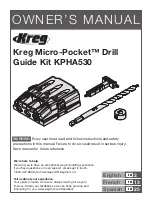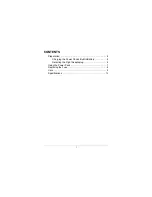
10
Note: As the battery becomes discharged, the power available will drop.
Operating the machine at low speed will cause a reduction in torque.
6. After use, recharge the battery pack as shown on pages 8-9. Avoid leaving
your batteries in a discharged state.
LOOSENING A WHEEL NUT
1. Remove any wheel trim, before selecting the appropriate socket and
placing firmly on the square drive of the wrench.
2. With the FORWARD/NEUTRAL/REVERSE switchbar
in the REVERSE running position, and holding the wrench firmly in BOTH
HANDS, pull the trigger. The nut will be impacted repeatedly until it is
loosened.
IMPORTANT!
Release the trigger immediately the nut begins to
loosen.
3. Jack up the vehicle according to the vehicles handbook so that the
wheel is clear of the ground, then proceed to fully undo the wheel nuts.
ENSURE THAT THE CORRECT SOCKET IS BEING USED FOR THE NUTS ON
YOUR PARTICULAR VEHICLE. AN INCORRECT SOCKET SIZE IS LIKELY TO
DAMAGE THE HEADS OF THE BOLTS/NUTS.
TIGHTENING A NUT
1
Start the nut by hand, ensuring it is not cross threaded, then with the
appropriate socket installed on the wrench, place it on the nut.
2. With the FORWARD/NEUTRAL/REVERSE switch-bar in the clockwise
(FORWARD) running position, and holding the wrench firmly in BOTH
HANDS, pull the trigger.
3. Run each nut up in turn until it is ‘nipped’ up only - do not tighten. When
all nuts are nipped up, tighten progressively by pulling the trigger fully and
allowing the action to operate for 3 to 4 impacts
only
to prevent
overtightening.
4. ALWAYS finish tightening with a torque wrench. The weight of the vehicle
will need to be placed on the wheel to prevent it from rotating while the
nuts are tightened. Ensure the final torque applied to the nuts meets the
vehicle manufacturer’s recommendations.


































